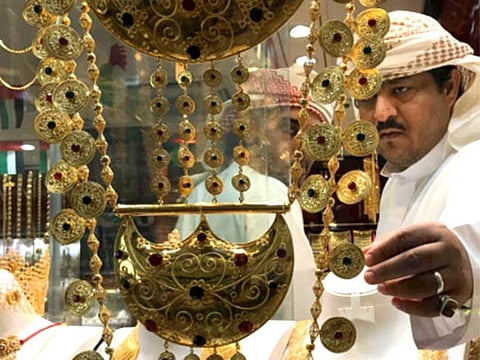Africa's untapped export potential at $9.7bn over next 5 years
Exports and re-exports jumped 29 per cent year-on-year to reach a record $7.8 billion

There is approximately $9.7 billion worth of untapped export potential for UAE products in African markets, which could be captured by UAE exporters over the next five years, according to an analysis by Dubai Chamber.
The declared value of exports and re-exports by members of Dubai Chamber between January and Aug 2021 jumped by 29 per cent year-on-year to reach a record $7.8 billion, on the back of robust recovery in both consumer and industrial demand.
However, an analysis by Dubai Chamber found that significant opportunities for growth in trade with the continent still lies ahead.
In addition to Egypt, which dominates North Africa in terms of markets with the highest remaining untapped potential, the analysis revealed a high concentration of opportunities in Eastern Africa, particularly in Ethiopia, Kenya, Djibouti and Tanzania. Moreover, three Western African markets, namely, Nigeria, Senegal, and Ghana also show high untapped potential under numerous product categories.
Untapped export potential
According to data from the International Trade Center (ITC) – using an economic model that considers characteristics of the exporter, target market, and the strength of the relationship between them – several countries show major potential in some key sectors. The model uses supply and demand data along with ease of trade indicators to determine the untapped export potential for a selected exporting country in the chosen target market.
Markets with potential
Electrical machinery: Egypt ($306m), Nigeria ($95m), Ethiopia ($80m), Senegal ($74m), and Ghana ($74m). Plastics and rubber: Kenya ($119m), Nigeria ($112m), Egypt ($99m), Tanzania ($80m), and Ghana ($67m). Ferrous metals: Egypt ($160m), Ethiopia ($59m), Djibouti ($38m), Kenya ($36m), and Senegal ($35m). Metal products: Egypt ($81m), Ethiopia ($35m), Nigeria ($27m), Senegal($27m), and Congo DRC ($26m). Sugar: Somalia ($79m), Djibouti ($43m), Sudan ($43m), Egypt ($40m), and Benin ($21m). Metals (excluding ferrous/precious): Egypt ($125m), Kenya ($51m), Senegal ($20m), Ethiopia ($19m), and Nigeria ($16m). Food products (processed): Egypt ($76m), Somalia ($32m), Nigeria ($23m), Djibouti ($18m), and Senegal ($16m). Synthetic textile fabric: Nigeria ($54m), Morocco ($29m), Senegal ($20m), Egypt ($19m), and Benin ($18m). Beauty products and perfumes: Markets with the highest potential under this product group include Egypt ($53m), Nigeria ($21m), Kenya ($21m), Ethiopia ($19m), and Djibouti ($19m). Chemicals: Egypt ($53m), Kenya ($22m), Nigeria ($15m), Tanzania ($15m), and Ethiopia ($14m). Dairy products: Algeria ($49m), Nigeria ($27m), Egypt ($15m), Angola ($14m), and Somalia ($14m). Mineral products: Ghana ($31m), Kenya ($22m), Cameroon ($17m), Cote d'Ivoire ($15m), and Somalia ($15m). Jewellery/Precious metal articles: Sudan ($19m), Ethiopia ($17m), Morocco ($14m), South Africa ($13m), and Somalia ($8m). Paper products: Kenya ($27m), Egypt ($20m), Ethiopia ($16m), Tanzania ($15m), and Nigeria ($10m). Rice: Benin ($35m), Kenya ($12m), Somalia ($12m), Ghana ($10m), and Cote d'Ivoire ($9m). Pulses: Egypt ($49m), Sudan ($26m), Algeria ($16m), Morocco ($6m), and Eritrea ($6m). Apparel: Nigeria ($23m), Sudan ($21m), Ethiopia ($7m), Tanzania ($5m), and South Africa ($5m). Pharmaceutical components: Kenya ($11m), Tanzania ($9m), Ethiopia ($8m), Congo DRC ($7m), and South Africa ($6m). Vegetable oils: Djibouti ($10m), Egypt ($9m), Tanzania ($7m), Ethiopia ($5m), and Senegal ($5m). Ceramic articles: Senegal ($15m), Kenya ($8m), Egypt ($6m), Ghana ($5m), and Djibouti ($5m).
GBF Africa
Given this huge untapped demand, Dubai Chamber is committed to helping the business community capture opportunities and tackle potential challenges in the African markets through hosting events that contribute to bridging the gap between regulators in African countries and international businesses. In this regard, Dubai Chamber is hosting the sixth edition of the Global Business Forum on Africa, starting on 13 October.
From their side, Dubai and UAE-based exporters need to take advantage of the resources offered by Dubai Chamber, particularly in the area of networking, as it has physical presence in the continent with 4 international offices based in Ethiopia, Ghana, Mozambique, and Kenya.



